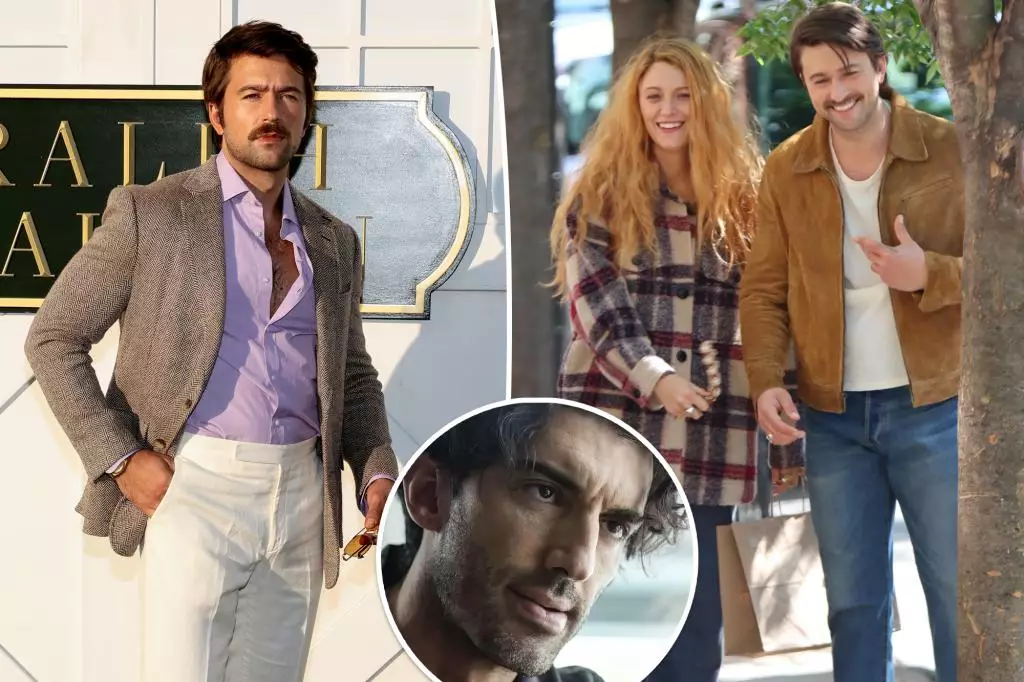In a shocking development within the film industry, actress Blake Lively has filed sexual harassment claims against her co-star and director, Justin Baldoni, sparking a widespread conversation about workplace conduct and the dynamics of power. This incident highlights the urgent need for dialogue around harassment in Hollywood and the responsibilities of individuals in positions of authority.
Lively, known for her roles in “Gossip Girl” and “A Simple Favor,” has accused Baldoni—who gained fame through the TV show “Jane the Virgin”—of creating a hostile work environment during the production of “It Ends With Us.” Her bold move to file a complaint not only reveals her experiences but also serves as a call to action for the industry to reconsider its treatment of actresses and the safeguards in place to protect them. Lively claims that her requests for boundaries were consistently ignored, highlighting a larger pattern of disrespect towards women in the workplace.
In her complaint, Lively specifies instances where Baldoni reportedly shared inappropriate content and made personal comments that breached professional decorum. The allegations range from showing her “nude videos or images of women” to discussing his “porn addiction” in her presence. Such behaviors, if proven true, underline a disturbing culture where lines of professionalism are blurred, especially during films that require intimate scenes.
Support for Lively: A Stand Against Toxicity
Brandon Sklenar, who starred alongside Lively in the film and played the character Atlas Corrigan, has publicly supported her in this challenging situation. Using his social media platform, he urged followers to comprehend the severity of her complaint, stating, “For the love of god read this.” By doing so, Sklenar not only stands in solidarity with Lively but also emphasizes the collective responsibility of the film community to address such gravitas, rather than dismiss it.
There lies an inherent dichotomy in public perception regarding the role of industry figures responding to such allegations. Lively, as a well-known actress, faces scrutiny that often diminishes her narrative, leading to the vilification of her actions and intentions. Sklenar’s defense represents a movement toward protecting women who seek to share their truths, asserting that these conversations are not mere headlines, but crucial discussions that could shape the trajectory of future productions.
In contrast to Lively’s assertions, Baldoni’s legal team has unequivocally denied the allegations, labeling them as “categorically false” and claiming they were made to tarnish Baldoni’s reputation. This defensive posture is typical in the face of sexual harassment claims, where the accused often attempts to delegitimize the accusations rather than engage with the highlighted issues. Based on these contrasting narratives, it becomes essential to approach such situations with care, understanding the complexities and often, the manipulative dynamics at play.
Interestingly, after the allegations came to light, Baldoni’s talent agency promptly severed ties with him, a reflection of Hollywood’s immediate response in cases of serious misconduct claims. This swift action signals a shift in the industry’s approach to such matters, demonstrating that even major figures can face professional consequences for their actions. Lively’s continuing representation by WME alongside her husband, Ryan Reynolds, presents a juxtaposition to Baldoni’s situation, further complicating the narrative of accountability.
This incident serves as a critical reminder of the work still needed to foster a safe and supportive environment for everyone in the film industry. The fallout from Lively’s claims prompted conversations about boundaries, consent, and the ongoing struggle against harassment in creative environments. As we navigate this complex terrain, the industry must prioritize constructive discussions around behavior and support victims courageously speaking out.
Moving forward, awareness and advocacy remain vital. As audiences and stakeholders in Hollywood, we have a responsibility to listen critically and act decisively, cultivating a professional landscape that prioritizes respect, safety, and the well-being of artists. The path is fraught with challenges, but through collaborative efforts and unwavering solidarity, the possibility for profound change becomes ever more tangible.

